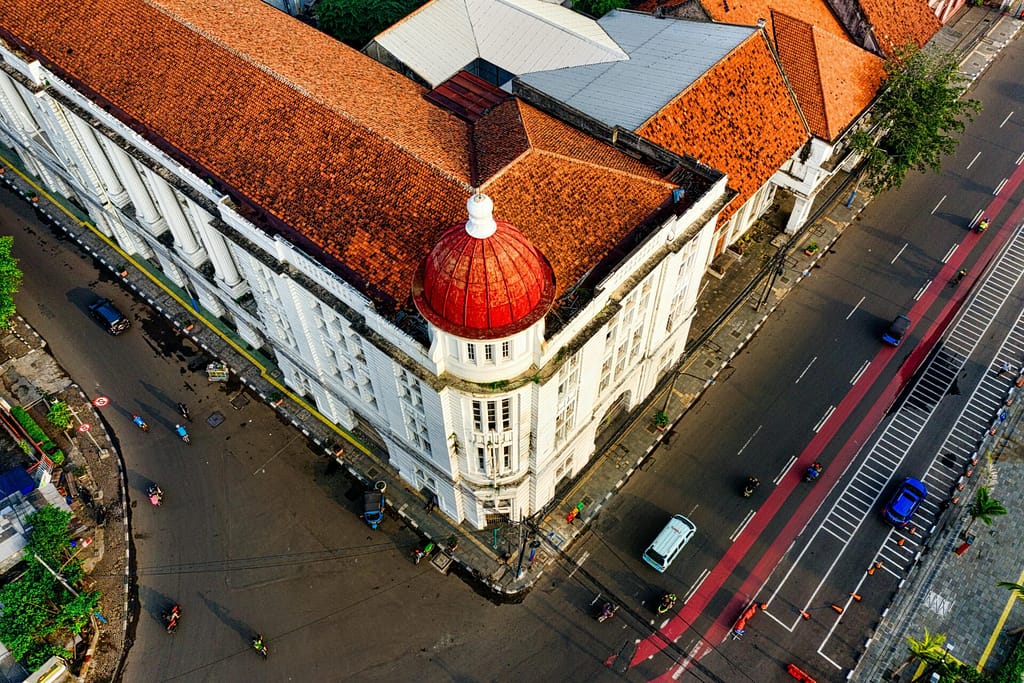Surabaya, Indonesia: The proposal by Indonesia’s Ministry of Religious Affairs to eliminate the role of a body composed mostly of Muslims has faced opposition because it has complicated minority religions’ attempts to construct houses of worship.
The vice president of Indonesia issued a warning regarding attempts to end the Interreligious Harmony Forum (Forum Kerukunan Umat Beragama, or FKUB), which is predominantly Muslim.
Vice President Ma’ruf Amin, whose term expires in October, told reporters on August 7 that the minister of religious affairs should not have proposed the termination.
According to detik.com, religious councils must approve the construction of houses of worship.
Ma’ruf Amin said the Ministry of Religious Affairs should review the basis for FKUB’s recommendations to establish houses of worship. Ministry officials should listen to the parties involved in formulating the regulation.
“First, consider the reasons for the regulation and why it occurred—there are specific justifications behind its implementation,” he explained. “Seek input from various stakeholders.”
Ma’ruf Amin helped establish the FKUB’s role.
“The agreement was made after four months and in 11 meetings,” he reportedly said. “I remember I was the one who gave birth to it. The outcome of those talks was an agreement later expressed as a joint regulation by the Home Affairs and Religion Ministers.
Indonesian Minister of Religion Affairs Yaqut Cholil Qoumashad announced that the government was planning to change regulations for building houses of worship to make it easier for religious minority groups to establish them, according to detik.com.
Under the new rules, Yaqut announced that only suggestions from regional offices of the Department of Religious Affairs would be considered for constructing places of worship. He made this statement during his speech at the National Dialogue and National Working Meeting of the Greater Indonesia Christian Movement (Gekira) on August 3 at the Bidakara Hotel in Jakarta.
“The government, to show its presence among the religious minority groups, considers the recommendation for the establishment of a house of worship sufficient only with the ministry of religion, and from now on revokes the role of FKUB,” Yaqut said.
Yaqut promised the regulations would be issued soon, despite FKUB’s recommendations, which complicate religious communities’ efforts to build houses of worship.
He stated that religious groups must fulfill two requirements according to the current law.
“Of course, this makes it difficult for all of you, especially when there are many Muslims and the majority there,” Yaqut said. “Yesterday, the Coordinating Minister for Political, Legal, and Security Affairs agreed with us and the Minister of Home Affairs to make this a presidential regulation. So, in a moment, hopefully, the establishment of these houses of worship will no longer be difficult.”
However, the last-minute appeal by the vice president of Joko Widodo’s administration concerned Bonar Tigor Naipospos, deputy chair of the rights organization Setara Institute for Democracy and Peace, who said he was worried that rejection would delay the implementation of the new regulation.
“The problem is, Ma’ruf Amin’s statement could represent a great power behind him—the power of Islamists who are not always in line with moderate Indonesians,” Bonar told Morning Star News.
Ma’ruf Amin is the leader of the Majelis Ulama Indonesia (Indonesian Ulema Council, or MUI), the country’s top Islamic scholarly body, which is conservative.
Ma’ruf was a key figure in several fatwas issued by the MUI that promote intolerance and fuel violations of the constitutional rights of minorities by vigilante groups, Bonar said.
These fatwas include rulings against secularism, pluralism, and religious liberalism in 2005, the heresy of Ahmadiyah in 2008, and blasphemy against the Quran and clerics in Basuki Tjahaja Purnama’s (Ahok) speech in 2016.
Bonar said that many of the views of Ma’ruf Amin and the MUI impede the advancement and fulfillment of the constitutional rights of minority groups.
Christian Support
Two leading Indonesian organizations hosting hundreds of Christian denominations responded positively to the new regulations.
The head of the Communion of Indonesian Churches (Persatuan Gereja Indonesia, or PGI), Pastor Gomar Gultom, said the proposed policy is in line with the longstanding proposal PGI submitted to President Widodo, Minister of Religious Affairs Yaqut and Minister of Home Affairs Tito Karnavian.
Gomar told CNNIndonesia.com on August 4 that it is “extremely absurd” that the FKUB’s recommendation can cancel the state’s authority to grant or not grant a permit to establish a house of worship.
He added, however, that he wondered whether the change would make it easier to establish houses of worship.
He explained, “The introduced action is a step towards fulfilling the requirements outlined in Article 29 of the 1945 Constitution.”The chairman of the Setara Institute agreed: “I see the step as compatible with Indonesia’s diverse system consisting of compromising identities and beliefs,” said Hendardi, who goes by a single name, on Tuesday, August 13.
According to Hendardi, Setara has long pushed the government to simplify establishing houses of worship and take progressive measures to eliminate discriminatory provisions in the joint decree that made it difficult for minority religions to get building permits.
The Indonesian Bishops’ Conference (Konperensi Wali Gereja Indonesia, or KWI) expressed appreciation for the plan, which would streamline bureaucracy. The KWI also asked the Ministry of Religious Affairs to review other requirements for building houses of worship and revoke the FKUB recommendation.
Indonesia ranked 42nd on the Christian support organization Open Doors’ 2024 World Watch List of the 50 countries where it is most challenging to be a Christian.
According to the WWL report, Indonesian society has taken on a more conservative Islamic character, putting churches engaged in evangelistic outreach at risk of attack by Islamic extremist groups.



